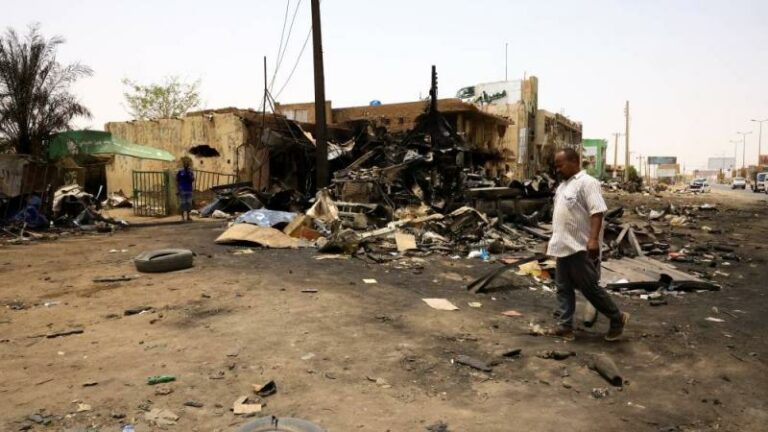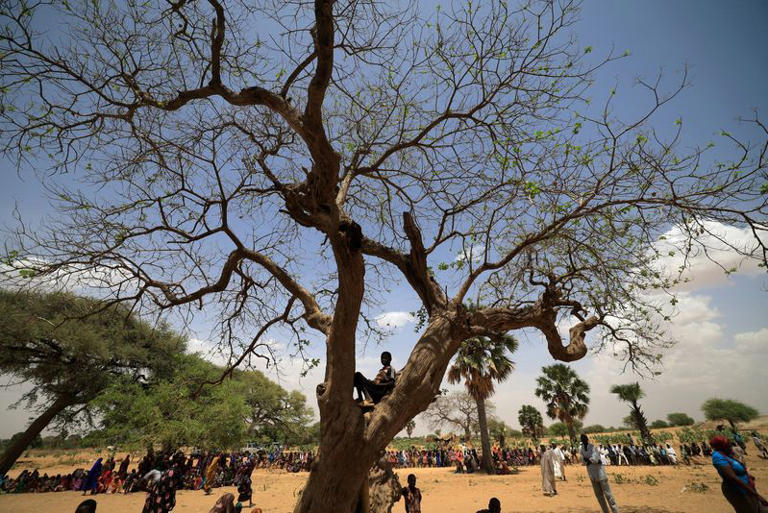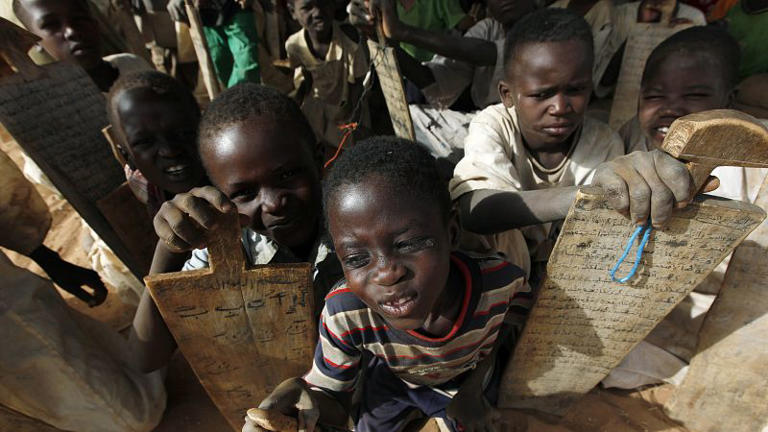A United Nations report reviewed by Reuters on Friday indicated that between 10,000 and 15,000 people were killed in a single city in West Darfur, Sudan, last year in ethnic violence carried out by quasi-military Rapid Support Forces and allied Arab militias.
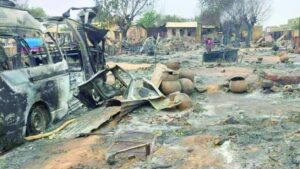 In the report submitted to the United Nations Security Council, independent UN sanctions monitors attributed the death toll in Genaina to intelligence sources, comparing it with UN estimates that around 12,000 have been killed across Sudan since the war erupted on April 15, 2023, between the Sudanese army and the Rapid Support Forces.
In the report submitted to the United Nations Security Council, independent UN sanctions monitors attributed the death toll in Genaina to intelligence sources, comparing it with UN estimates that around 12,000 have been killed across Sudan since the war erupted on April 15, 2023, between the Sudanese army and the Rapid Support Forces.
The monitors also described the accusations that the United Arab Emirates provided military support to the Rapid Support Forces as “credible.” In November, a senior Sudanese army commander accused the UAE of supporting the military efforts of the Rapid Support Forces. The UAE stated in a letter to the monitors that 122 flights delivered humanitarian aid to Genaina to assist Sudanese fleeing the conflict.
Sudanese people, who fled the conflict in Murnei in Sudan’s Darfur region, walk together upon crossing the border between Sudan and Chad in Adre, Chad August 2, 2023. REUTERS/Zohra Bensemra
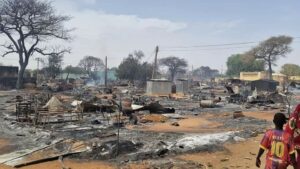 A UAE official told Reuters on Saturday that an invitation was extended to UN monitors to visit a field hospital in Genaina “to directly witness the humanitarian efforts undertaken by the UAE to alleviate the suffering caused by the current conflict.”
A UAE official told Reuters on Saturday that an invitation was extended to UN monitors to visit a field hospital in Genaina “to directly witness the humanitarian efforts undertaken by the UAE to alleviate the suffering caused by the current conflict.”
The United Nations reports that approximately 500,000 people have fled from Sudan to eastern Chad, hundreds of kilometers south of Genaina. The monitors wrote that Genaina witnessed “intense acts of violence” between April and June of the previous year, accusing the Rapid Support Forces and its allies of targeting the African Masalit ethnic tribe in attacks that “may amount to war crimes and crimes against humanity.”
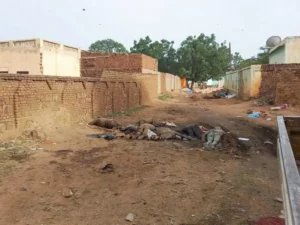 The Rapid Support Forces previously denied these accusations, stating that any soldier found to be involved would face justice. The Rapid Support Forces have not yet responded to Reuters’ request for comment.
The Rapid Support Forces previously denied these accusations, stating that any soldier found to be involved would face justice. The Rapid Support Forces have not yet responded to Reuters’ request for comment.
The monitors reported that Genaina saw “widespread acts of sexual violence” committed by the Rapid Support Forces and allied militias. Survivors described gruesome scenes of bloodshed in Genaina and along the 30-kilometer road from the city to the Chad border.
The monitors stated that the Rapid Support Forces’ control over most of Darfur relied on three support lines: allied Arab communities, active and complex financial networks, and new military supply lines passing through Chad, Libya, and South Sudan.
UN missions in Chad, Libya, and South Sudan have not yet responded to a request for comment.
The monitors wrote, “The complex financial networks established by the Rapid Support Forces before and during the war enabled them to acquire weapons, pay salaries, fund media campaigns, exert pressure, and purchase support from other political and armed groups.” They added that the Rapid Support Forces used proceeds from their pre-war gold activities to create a network of up to 50 companies in various sectors.
The report concluded that the new military supplies obtained by the Rapid Support Forces had a “tremendous impact on the balance of power, whether in Darfur or other regions of Sudan.” The Rapid Support Forces have recently gained military gains, capturing Wad Madani, one of the largest cities in Sudan, and strengthening their control over West Darfur.
A UAE official reiterated on Saturday the country’s denial of involvement in providing military support to either side of the conflict in Sudan. The official, who did not disclose his name in a written statement to Reuters, said, “The UAE confirms that it does not supply weapons and ammunition to either warring party and does not favor either side in the current conflict.”
In December, the United States officially determined that both parties to the conflict in Sudan committed war crimes, and that the Rapid Support Forces and allied militias also committed crimes against humanity and ethnic cleansing.
The war has left nearly half of Sudan’s population, totaling 49 million people, in need of assistance, with over 7.5 million people displaced from their homes, making Sudan the site of the world’s largest displacement crisis. Famine is also spreading.
Sanctions monitors told the Security Council, “Excessive mediation paths and entrenched positions of the warring parties and competing interests in the region have led to the fact that these peace efforts have not stopped the war yet, achieved a political settlement, or addressed the humanitarian crisis.”

